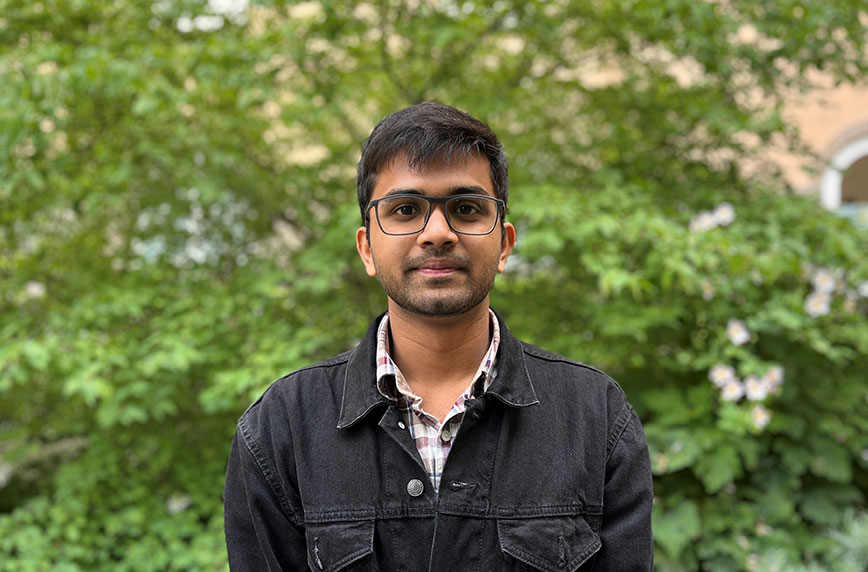Haarees
Haarees comes from India. Before coming to Sweden, he completed his bachelor's studies in Mechanical Engineering and later moved on to the industry side by working for a furnace manufacturing company for a year. Beyond academics and work, he enjoys playing sports, like badminton and swimming.

Why did you choose this master's programme at KTH?
I chose to pursue my master's programme at KTH for several compelling reasons. First, KTH has a distinguished international reputation and is recognized as one of Sweden's top technical institutions. Its long history of academic success and dedication to innovation across numerous technological and engineering sectors greatly appealed to me. Specifically, I opted for the Material Science department at KTH because of its outstanding recognition and ranking worldwide. It consistently ranks within the top 25 in the world for its subject area. This high ranking speaks volumes about the department's academic quality, research opportunities, and the potential for gaining cutting-edge knowledge and skills in materials science. Studying in such a reputable department will not only provide me with a world-class education but also open doors to exciting research and career opportunities in the field of material science.
Have you chosen a specialisation track within the programme?
Yes, I have chosen the Materials Design and Process Science specialisation track within the programme. I'm particularly passionate about materials manufacturing and processing. Working with furnaces and refractory materials has been a long-standing interest of mine. I'm driven by the desire to reduce CO2 emissions, enhance process efficiency, and improve the financial feasibility of materials manufacturing processes. This specialisation aligns perfectly with my career aspirations and allows me to focus on the aspects of materials science that I'm most passionate about.
How do studies at KTH differ from your previous studies?
My previous educational experience was primarily theory-based, where exams were pivotal in determining grades. However, at KTH, the approach to education is refreshingly different. The assessment pattern at KTH is a blend of assignments, projects, and exams. It provides students with a more well-rounded education, ensuring that they not only grasp theoretical concepts but also learn how to apply them in practical scenarios.
What truly sets KTH apart from my previous educational institutions is the opportunity for collaborative projects with industry professionals. These projects offer a unique chance to interact with experts from various fields and gain insights into real-world challenges and solutions. Exposure to industrial collaboration is a remarkable aspect of KTH's curriculum, as it equips students with theoretical knowledge, practical skills, and a valuable network of industry connections. This combination of hands-on experience, interdisciplinary learning, and industry engagement makes KTH's educational model distinctive and highly beneficial for personal and professional growth.
How would you describe your time at KTH so far?
My journey at KTH has been quite an adventure - from relaxed classes to the occasional assignments and project-induced stress, all while maintaining a fantastic work-life balance. It's been a mix of fun and challenges!
What do you want to do after graduating?
After completing my master's degree, my career path is still uncertain, but I have several options in mind. I'm inclined towards working in the industry, particularly in material manufacturing or technology-focused companies, to gain valuable professional experience. However, I'm also considering pursuing a Ph.D. or an MBA. The decision will largely depend on how my interests and goals evolve. As I gain more experience and explore my options, the path that suits me best will become more evident. So, while I have some ideas, I'm keeping my options open and letting the course of time guide my decision-making process.
